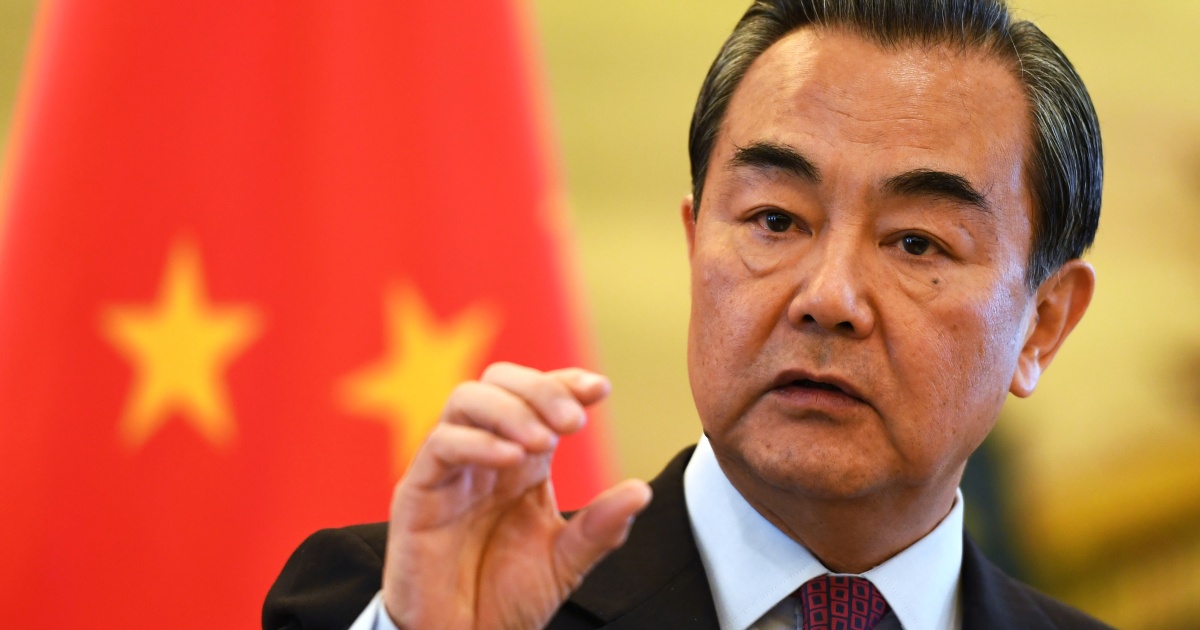
Indian foreign minister says relations cannot be normal as long as there is huge deployment of troops along their disputed border.
India says ties with China could not be normal until their troops are pulled back from each other on the disputed border, but Beijing has struck a conciliatory note during a meeting of their foreign ministers in New Delhi.
Both nations have deployed thousands of troops on the high-altitude border since hand-to-hand fights killed 20 Indian and four Chinese soldiers northern Himalayan region of Ladakh in June 2020. Talks between senior military officers have made little progress.
“I was very honest in my discussions with the Chinese foreign minister, especially in conveying our national sentiments,” India’s Foreign Minister Subrahmanyam Jaishankar told a news briefing after his three-hour meeting with Wang Yi on Friday.
“The frictions and tensions that arise from China’s deployments since April 2020 cannot be reconciled with a normal relationship between the two neighbours.”
In a statement, Wang said China and India should work together to promote peace and stability around the world.
“The two sides should … put the differences on the boundary issue in an appropriate position in bilateral relations, and adhere to the correct development direction of bilateral relations,” he said.
“China does not pursue the so-called “unipolar Asia” and respects India’s traditional role in the region. The whole world will pay attention when China and India work hand in hand.”
Jaishankar, a former ambassador to Beijing, said it was at China’s request that India did not announce Wang’s trip before his arrival in the capital late on Thursday.
Wang met India’s national security adviser, Ajit Doval, who also pressed him for a de-escalation at the border.
Since February last year, both India and China have withdrawn troops from some sites on the northern and southern banks of the Pangong Tso Lake, Gogra and Galwan Valley, but they continue to maintain extra personnel as part of their deployment.
It was not immediately clear if India offered to pull back its troops if China did.
In a statement on Saturday, China’s foreign ministry said Wang called for transitioning the border issue from a state of emergency response to normal management as soon as possible.
Both agreed to speed up the resolution of remaining issues, properly manage the situation on the ground and avoid misunderstandings and miscalculations, it added.
Wang and Jaishankar also discussed their nations’ approaches to tackling Russia’s invasion of Ukraine.
“Both of us agreed on the importance of an immediate ceasefire, as well as a return to diplomacy,” Jaishankar said.
India and China each consider Russia a friend and have rejected Western calls for condemnation of Russia’s invasion of Ukraine, which Russia calls a “special military operation”.
Wang, who visited Pakistan and Afghanistan earlier this week, is set to fly to the Himalayan nation of Nepal later on Friday during a whirlwind tour of South Asia, where China is trying to strengthen its influence.
Before his arrival, Wang drew a rebuke from the Indian government ahead of his trip for remarks made in Pakistan this week on the disputed Kashmir region. India and Pakistan rule Muslim-majority Kashmir in part but claim in full, and China has generally stood by its close ally Pakistan.
Border tensions
Thousands of Indian troops remain deployed along India’s remote border with China in Ladakh’s Galwan valley in the Himalayas, where hand-to-hand fighting broke out in 2020 – the first deadly encounter between the nuclear-armed neighbours in decades.
Their unmarked 3,500km (2175 miles) long frontier has remained largely peaceful since a border war in 1962, and both countries still claim vast swathes of each other’s territory.
After the Galwan clash, senior officers from the two militaries have held more than a dozen rounds of talks to de-escalate the standoff in Ladakh, but progress has been limited.
Last February, after multiple military talks, Indian and Chinese troops completed a pullout from a lake area in Ladakh. Days later, Wang Yi and Jaishankar agreed to set up a hotline.
Beijing has repeatedly said that the border standoff does not represent the entirety of China-India relations, while New Delhi has maintained that peace along the frontier is essential for the two countries to work together.
New Delhi, however, has numerous other concerns regarding China’s activities in almost all of India’s neighbours.
Aside from the tensions in the Himalayas, India’s mistrust stems from Beijing’s support of old foe Pakistan, the competition for influence in Nepal, and concern over China’s economic clout in Bangladesh, Myanmar and Sri Lanka.
Trade relations
China is India’s largest trading partner, with bilateral trade expanding exponentially since the turn of the century to $95bn in 2021-22.
Trade remains heavily tilted in Beijing’s favour. India’s trade deficit with China is the largest it has with any county, and the imbalance has been steadily widening.
More than 100 Chinese companies operate in India, including state-owned enterprises and electronics manufacturers that have come to dominate India’s mobile phone market.
Since 2020, however, New Delhi has tightened the screws on Chinese players in Asia’s third-largest economy by increasing scrutiny of investments or imports and banning some mobile apps.
The Indian government had previously held up investments worth billions from Beijing, but last week said that approvals for 66 proposals from neighbouring countries – including China – totalling $1.79bn had been approved.
Last month, India also blocked access to dozens of Chinese apps over security concerns, increasing the tally of such restricted mobile apps to more than 300.








